147 start with P start with P
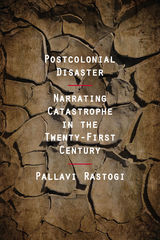
Rastogi creates a narratology for postcolonial disaster fiction and brings concepts from Disaster Studies into the realm of literary analysis.
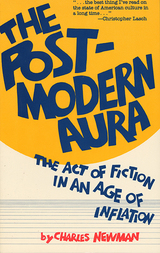
In the twenty-first century as an interest in Marxist thought again coincides with the specter of financial inflation, The Post-Modern Aura is timely again.
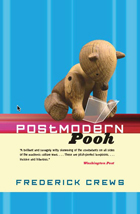
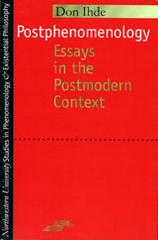

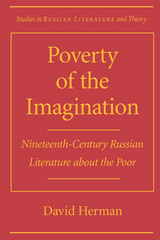
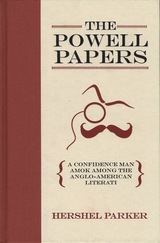
Thoughtfully bearing what he presented as a volume of Tennyson with a few trifling revisions in the hand of the poet, Powell was embraced by the slavishly Anglophile New York literary establishment, including a young Herman Melville. In two pot-boilers—The Living Authors of England (1849) and The Living Authors of America (1850)—Powell denounced the most revered American author, Washington Irving, for plagiarism; provoked Charles Dickens to vengeful trans-Atlantic outrage and then panic; and capped his insolence by identified Irving and Melville as the two worst “enemies of the American mind.” For almost four more decades he sniped at Dickens, put words in Melville’s mouth, and survived even the most conscientious efforts to expose him. Long fascinated by this incorrigible rogue, Hershel Parker in The Powell Papers uses a few familiar documents and a mass of freshly discovered material (including a devastating portrait of Powell in a serialized novel) to unfold a captivating tale of skullduggery through the words of great artists and then-admired journalists alike.
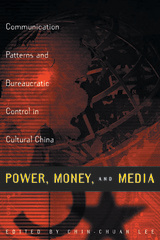

1941 is a year of drama and spectacle for Americans. Joe DiMaggio’s record-breaking hitting streak enlivens the summer, and winter begins with the shock and horror of the Japanese attack on Pearl Harbor. The news from Europe is bleak, especially for the Jewish population. Joltin’ Joe, possessing a sweet swing and range in center, also has another gift: he can see the future. And he sees dark times ahead.
In her inventive novel The Powers, Valerie Sayers, in both realistic and fantastic chapters, transports the reader to an age filled with giants: Dorothy Day and Walker Evans appear beside DiMaggio. The problems they face, from Catholic antisemitism to the challenge of pacifism in the face of overwhelming evil, play out in very public media, among them the photography of Evans and the baseball of DiMaggio. At once magical and familiar, The Powers is a story of witness and moral responsibility that will, like Joe DiMaggio, find some unlikely fans.
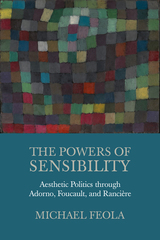
Feola provides insightful engagements with the works of Adorno, Foucault, and Rancière as well as a survey of contemporary debates on aesthetics and politics. He uses this aesthetic framework to develop a more robust account of political agency, demonstrating that politics is not reducible to the exchange of views or the building of institutions, but rather incorporates public modes of feeling, seeing, and hearing (or not-seeing and not-hearing). These sensory modes must themselves be transformed in the work of emancipatory politics.
The book explores the core question: what does the aesthetic offer that is missing from the official languages of politics, citizenship, and power? Of interest to readers in the fields of critical theory, political theory, continental philosophy, and aesthetics, The Powers of Sensibility roots itself within the classical tradition of critical theory and yet uses these resources to speak to a variety of contemporary political movements.

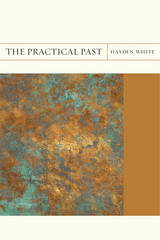
Hayden White borrows the title for The Practical Past from philosopher Michael Oakeshott, who used the term to describe the accessible material and literary-artistic artifacts that individuals and institutions draw on for guidance in quotidian affairs. The Practical Past, then, forms both a summa of White’s work to be drawn upon and a new direction in his thinking about the writing of history.
White’s monumental Metahistory: The Historical Imagination in Nineteenth-Century Europe (1973) challenged many of the commonplaces of professional historical writing and wider assumptions about the ontology of history itself. It formed the basis of his argument that we can never recover “what actually happened”in the past and cannot really access even material culture in context. Forty years on, White sees “professional history" as falling prey to narrow specialization, and he calls upon historians to take seriously the practical past of explicitly “artistic” works, such as novels and dramas, and literary theorists likewise to engage historians.
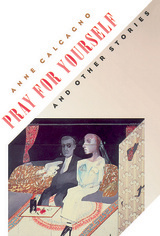
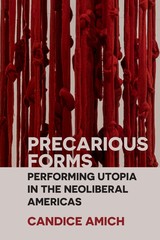
The poets and artists surveyed in Precarious Forms enact gestures of solidarity and mutual care at sites of neoliberal dispossession. In her analysis of poems, body art, and multimedia installations that illuminate the persistence of a radical utopian imaginary in the Americas, Amich engages critical debates in performance studies, Latin American cultural studies, literature, and art history.

Twenty-first-century Europe is undergoing dramatic political and economic transformations that produce new forms of transnational contact as well as new regimes of exclusion and economic precarity. These political and economic shifts both circumscribe and enable new possibilities for intimacy. Many European films of the last two decades depict experiences of political and economic vulnerability in narratives of precarious intimacies. In these films, stories of intimacy, sex, love, and friendship are embedded in violence and exclusion, but, as Maria Stehle and Beverly Weber show, the politics of touch and connection also offers avenues to theorize forms of attention and affection that challenge exclusive notions of race, citizenship, and belonging.
Precarious Intimacies examines the aesthetic strategies that respond to this tension and proposes a politics of interpretation that identifies the potential and possibility of intimacy.

The focus of Present Past is her life after the Shoah. Rejecting stereotypes of survivors as traumatized or broken, Schieber is stark yet exuberant, formidable yet nuanced. The woman who emerges in Schieber’s Present Past is a multifaceted, heterogeneous figure—poet, artist, and survivor. In it, she plays the passionate observer who dispassionately curates the kaleidoscopic memories of her tumultuous personal and professional life in Belgrade, Prague, Tel Aviv, New York, and Chicago.
Organized into thirteen chapters, each a blend of images, poems, and narrative, this moving new work offers myriad points of entry to readers of these genres, those fascinated in the relationship between the Holocaust and art, as well as readers interested in memory and survivorship.

Jen Beagin’s funny, moving, fearless debut novel introduces an unforgettable character, Mona—almost 24, cleaning houses to get by, emotionally adrift. Handing out clean needles to drug addicts, she falls for a recipient who proceeds to break her heart in unimaginable ways. She decamps to Taos, New Mexico, for a fresh start, where she finds a community of seekers and cast-offs. But they all have one or two things to teach her—the pajama-wearing, blissed-out New Agers, the slightly creepy client with peculiar tastes in controlled substances, the psychic who might really be psychic. Always just under the surface are her memories of growing up in a chaotic, destructive family from which she’s trying to disentangle herself. The story of her journey toward a comfortable place in the world and a measure of self-acceptance is psychologically acute, often surprising, and entirely human.
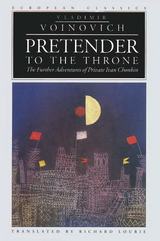
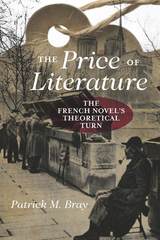
Literary thought, or the theory produced by the text, can only function by exploring what escapes dominant representations. The Price of Literature analyzes how certain iconic texts from the nineteenth century (by Mme de Staël, Hugo, Balzac, Flaubert, and Proust) perform a theoretical turn to claim the freedom to represent anything in the world, but also literature’s ability to transform the world it represents. The conclusion advances a new way of thinking about literary scholarship—one based on how literature redistributes ways of writing by lending form to thought.
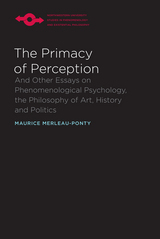
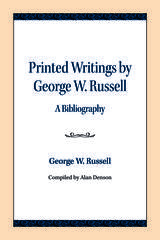
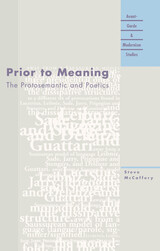

Until February 15, 2001, Howard Reich’s mother, Sonia, had managed to keep almost everything about her experience of the Holocaust from her son. That night, she packed some clothes and fled her house in Skokie, Illinois, convinced that someone was trying to kill her. This was the first indication that she was suffering from late-onset post traumatic stress disorder, a little-known condition that can emerge decades after the initial trauma. For Howard, it was also the opening of a window onto his mother’s past.
In Prisoner of Her Past, Howard Reich has written a moving memoir about growing up as the child of Holocaust survivors and finding refuge from silence and fear in the world of jazz. It is only when Sonia’s memories overwhelm her and Howard begins to piece together her story that he comes to understand how his parents’ lives shaped his own. The paperback edition includes an epilogue by the author that relates developments since the publication of the cloth edition.
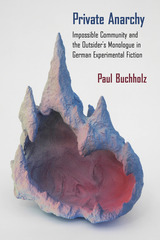
Buchholz suggests that in their experimental prose Gustav Landauer, Franz Kafka, Thomas Bernhard, and Wolfgang Hilbig each considered how the "void" of mass society could be the precondition for a new, anarchic form of community that would rest not on any assumptions of shared origins or organic unity but on an experience of extreme emptiness that blurs the boundaries of the self and enables intimacy between total strangers. This community, Buchholz argues, is created through the verbal form most closely associated with alienation and isolation: the monologue.
By showing how these authors engaged with the idea of community and by relating these contributions to an extended intellectual genealogy of nihilism, Private Anarchy illustrates the distinct philosophical and sociopolitical stakes of German experimental writing in the twentieth century.


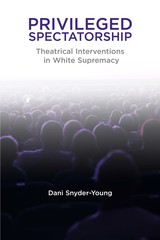
Many professional theater artists attempt to use live performances in formal theater spaces to disrupt racism and create a more equitable society. Privileged Spectatorship: Theatrical Interventions in White Supremacy examines the impact of such projects, looking at how and why they do and do not intervene in white supremacy. In this incisive study, Dani Snyder-Young examines audience responses to a range of theatrical events that focus on race‑related conflict or racial identity in the contemporary United States. The audiences for these performances, produced at mainstream not‑for‑profit professional theaters in major American cities in 2013–18, reflect dominant patterns of theater attendance: the majority of spectators are older, affluent, white, and describe themselves as politically progressive. Snyder-Young studies the ways these audience members consume the stories of racialized others and analyzes how different artistic, organizational, and programmatic strategies can (or cannot) mitigate white privilege.
This book is essential reading for scholars and students of theater, performance studies, and critical ethnic studies and for theater practitioners interested in equity and inclusion.
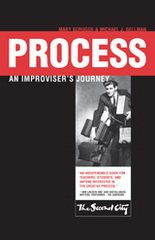
Process: An Improviser's Journey is an invaluable resource for mastering improv. Author, teacher, and improviser Michael Gellman was given a mission by famed improv coach Del Close: “[T]o create improvised one-act plays of literary quality from scratch.” Already steeped in the world of improvisation, he took it upon himself to do this, in the form of a class for other improvisers in which they would build the skills necessary to execute such a seemingly tall order. Scruggs and Gellman’s book, modeled after Stanislavski’s timeless An Actor Prepares, follows a fictional young actor taking Gellman’s real-life class.
Scruggs and Gellman introduce readers to Geoff, who has just moved to Chicago to pursue acting. He undergoes the standard trials of audition and rejection before he takes the advice of a fellow actor and turns to improv classes at Second City. At first, Geoff thinks improvisation is about laughs and loosening up, but he soon learns that it is a powerful tool as well as an end in itself. Through Geoff’s eyes, the book introduces readers to key tenets of improvisation: concentration, visualization, focus, object work, being in the moment, and the crucial “yes, and.” His experiences with the basics of improvisation do serve to get him a few roles, but his real breakthrough comes when he signs up for an improvised one-act class with Michael Gellman. He and his classmates arrive unprepared for the challenge, but with Gellman’s prompts and advice, they slowly move through process to performance over the course of three seasons in Chicago. The class culminates with their final project: a completely improvised one-act play performed in front of a live audience.
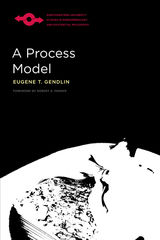
A Process Model, Gendlin’s magnum opus, offers no less than a new alternative to the dualism of mind and body. Beginning with living process, the body’s simultaneous interaction and identity with its environment, Gendlin systematically derives nonreductive concepts that offer novel and rigorous ways to think from within lived precision. In this way terms such as body, environment, time, space, behavior, language, culture, situation, and more can be understood with both great force and great subtlety.
Gendlin’s project is relevant to discussions not only in philosophy but in other fields in which life process is central—including biology, environmental management, environmental humanities, and ecopsychology. It provides a genuinely new philosophical approach to complex societal challenges and environmental issues.
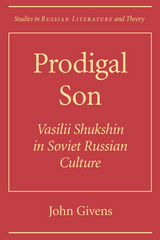
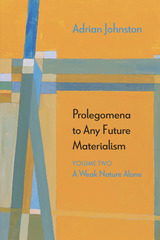
In A Weak Nature Alone, Johnston develops his transcendental materialist account of nature through engaging with and weaving together five main sources of inspiration: Hegelian philosophy, Marxist materialism, Freudian-Lacanian metapsychology, Anglo-American analytic neo-Hegelianism, and evolutionary theory and neurobiology. Johnston argues that these seemingly (but not really) strange bedfellows should be brought together so as to construct a contemporary ontology of nature. Through this ontology, nonnatural human subjects can be seen to arise in an immanent, bottom-up fashion from nature itself.
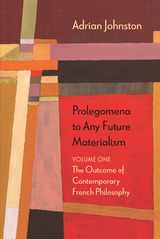
Adrian Johnston’s Prolegomena to Any Future Materialism, planned for three volumes, will lay the foundations for a new materialist theoretical apparatus, his “transcendental materialism.” In this first volume, Johnston clears an opening within contemporary philosophy and theory for his unique position. He engages closely with Lacan, Badiou, and Meillassoux, demonstrating how each of these philosophers can be seen as failing to forge an authentically atheistic materialism. Johnston builds a new materialism both profoundly influenced by these brilliant comrades of a shared cause as well as making up for the shortcomings of their own creative attempts to bring to realization the Lacanian vision of an Other-less, One-less ontology. The Outcome of Contemporary French Philosophy yields intellectual weapons suitable for deployment on multiple fronts simultaneously, effective against the mutually entangled spiritualist and scientistic foes of our post-Enlightenment, biopolitical era of nothing more than commodities and currencies.

Set in Petersburg in 1857, on the eve of the great reforms that would include the emancipation of the serfs, Prologue expresses the author's hostility toward Russian liberals, their halfhearted attempts to alleviate the sufferings of peasants, and their insufficient support of revolution, while also exploring the obstacles in the path of women's social and personal development in the Victorian era. Michael R. Katz's new translation makes this singular work available to the non-Russian reading public for the first time.
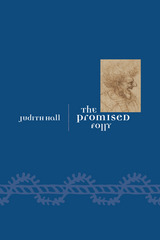
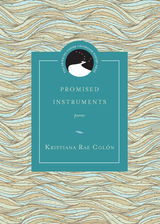
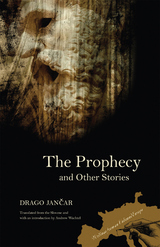
These newly collected short stories reveal a master at the top of his game. Drago Jancar possesses an acute understanding of the human psyche, enabling his stories to resonate beyond their particular milieu. This collection features seven pieces, drawn from four different collections, that together present the struggle of individuals against powerful forces. The characters try to make sense of a world of shifting borders and changing names that make the idea of a "homeland"—either literal or figurative—a dream rather than a reality.
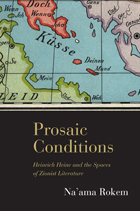
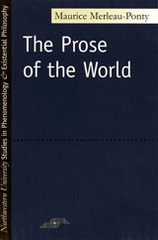
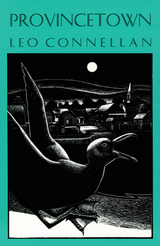
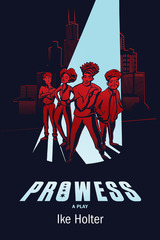
Avenging Chicagoans form a league for justice in Ike Holter’s superhero-inspired play, Prowess. In this heartfelt yet fantastical homage to Chicago, award-winning playwright Ike Holter introduces us to a quartet of “average” citizens who have been the victims of violence and felt powerless because of it.
In the face of the city’s seemingly intractable ills, the play’s characters join forces to rescue Chicago—and themselves. But how? With heart, wit, and wisdom, Holter explores how one responds to violence. Does a person focus on self-defense and personal survival? Or fight back—with more violence? Pulsating and physical, Prowess is about vulnerability, vigilantism, heroism, and self-knowledge.
Prowess is one of seven plays in Holter’s Rightlynd Saga, all to be published by Northwestern University Press. The other plays in the cycle are Rightlynd, Exit Strategy, Sender, The Wolf at the End of the Block, Red Rex, and Lottery Day.
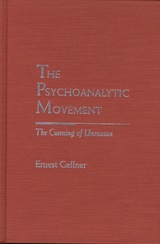


A democracy works when individuals have access to reliable information upon which to base decisions—information that in our day comes from the mass media. But what if journalists do not have the wherewithal to question their sources and evaluate the information they provide? This, Karla K. Gower explains, is precisely what happens when economic and competitive pressures shift power from the journalist to the source—and the source, not the journalist, controls the flow of information to the public. Gowers describes a situation in which people, “informed” by practitioners of public relations, do not have sufficient information to make valid decisions. At stake is the core credibility of the press itself, and therefore the essential claim of journalism to a privileged role in a democratic social order.

Although he surprised the world in 1866 with his first published book of poetry, Battle-Pieces and Aspects of the War, Herman Melville had long been steeped in poetry. This new offering in the authoritative Northwestern-Newberry series, The Writings of Herman Melville, with a historical note by Hershel Parker, is testament to Melville the poet. Penultimate in the publication of the series, Published Poems follows the release of Melville’s verse epic, Clarel (1876), and with it, contains the entirety of the poems published during Melville’s lifetime: Battle-Pieces, as well as John Marr and Other Sailors, with Some Sea-Pieces (1888), and Timoleon Etc. (1891).
Battle-Pieces and Aspects of the War has long been recognized as a great contribution to the poetry of the Civil War, comparable only to Whitman’s Drum-Taps. Its idiosyncrasies, many of them grounded in British poetry, kept it from immediate popularity, but it was not the production of a novice. Melville had made himself over into a poet in the late 1850s and had tried to publish a previous collection of poetry—now lost—in 1860.
John Marr and Other Sailors is a retrospective nautical book. Its portraits of sailors were influenced by Melville’s own experience of aging as well as by his long acquaintance with wasted mariners at the Sailors’ Snug Harbor on Staten Island, where his brother was governor.
The book modulates into "Sea-Pieces," including the grisly "Maldive Shark" and "To Ned," a powerful reflection on how Melville’s personal adventures with the Typee islanders in 1842 had accrued rich historical significance over the decades.
Thematically less unified, Timoleon Etc. contains poems with many European and exotic settings from ancient to modern times. The most famous are "After the Pleasure Party" and "The Age of the Antonines." Published in the last year of Melville’s life, some of the poems were first written many years earlier; for example, Melville copied "The Age of the Antonines" out for his brother-in-law in 1877, describing it as something found in a bundle of old papers. One whole section seems to have been almost entirely salvaged from the unpublished 1860 volume of poetry. As with the other volumes in the Northwestern-Newberry series, the aim of this edition of Published Poems is to present a text as close to the author’s intention as surviving evidence permits. To that end, the editorial appendix includes a historical note by Hershel Parker, the dean of Melville scholars, which gives a compelling, in-depth account of how one of America’s greatest writers grew into the vocation of a poet; an essay by G. Thomas Tanselle on the printing and publishing history of the works in Published Poems; a textual record that identifies the copy-texts for the present edition and explains the editorial policy; and substantial scholarly notes on individual poems.
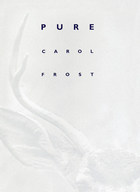
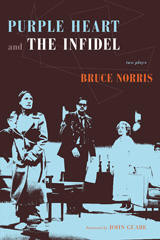
Loosely based on a true story, The Infidel tells of a charismatic and well-respected state Supreme Court justice who is faced with disciplinary action after his out-of-control affair with a young Latina junior staffer. He confers with his friend and attorney as he examines the consequences of his behavior and tries to judge the most difficult case of his life-his own. With dark irony and sharp, cutting dialogue, Bruce Norris explores sexual obsession and the legislation of human behavior.
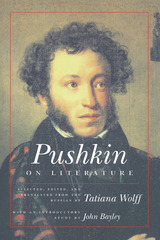
READERS
Browse our collection.
PUBLISHERS
See BiblioVault's publisher services.
STUDENT SERVICES
Files for college accessibility offices.
UChicago Accessibility Resources
home | accessibility | search | about | contact us
BiblioVault ® 2001 - 2024
The University of Chicago Press









